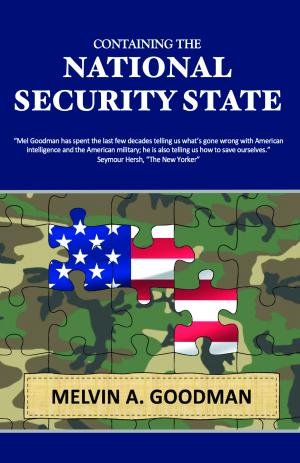Whistleblower at the CIA: An Insider’s Account of the Politics of Intelligence
“Mel Goodman has spent the last few decades telling us what’s gone wrong with American intelligence and the American military . . . he is also telling us how to save ourselves.”
— Seymour M. Hersh, The New Yorker
Melvin Goodman’s long career as a respected intelligence analyst at the CIA, specializing in US/Soviet relations, ended abruptly after twenty-four years. In 1990, Goodman resigned when he could no longer tolerate the corruption he witnessed at the highest levels of the Agency. In 1991 he went public, blowing the whistle on top-level officials and leading the opposition against the appointment of Robert Gates as CIA director. In the widely covered Senate hearings, Goodman charged that Gates and others had subverted “the process and the ethics of intelligence” by deliberately misinforming the White House about major world events and covert operations.
In this breathtaking exposé, Goodman tells the whole story. Retracing his career with the Agency, he presents a rare insider’s account of the inner workings of America’s intelligence community, and the corruption, intimidation, and misinformation that lead to disastrous foreign policy decisions. An invaluable and historic look into one of the most secretive and influential branches of US government—and a wake-up call for the need to reform its practices.
[button url=”http://www.amazon.com/gp/product/0872867307?ie=UTF8&camp=1789&creativeASIN=0872867307&linkCode=xm2&tag=melvgood-20″ style=”grey” size=”small” target=”_self”]Pre-Order at Amazon Now[/button]
Recent News and Latest Book
More Bloat For Bloated Defense Spending
The justification for additional defense spending is reminiscent of traditional Cold War justifications. The Senate’s defense authorization act even empowers the Pentagon to establish a “strategic competition initiative” for the U.S. African Command, which would lead to an expanded U.S. military presence in Africa. The United States has already trained leaders of coups in Mali and Guinea, and provided aid to repressive regimes in Uganda and Niger. The Pentagon can’t even provide an accurate inventory of the military equipment it has provided to African countries.
American Exceptionalism: Our Gun Culture at Home and Abroad
There is an insidious and unspoken connection between our gun culture at home and abroad. U.S. politicians and pundits believe that huge defense budgets provide international security for the United States, and many Americans believe that personal weapons provide safety at home. We don’t question the use of deadly weaponry in unnecessary wars overseas; Vietnam, Iraq, and Afghanistan are the most recent examples. At home, there are more guns than people — 120 guns for every 100 people. The United States is exceptional because some of the same weapons designed for war are available to teenagers fighting their personal demons.


